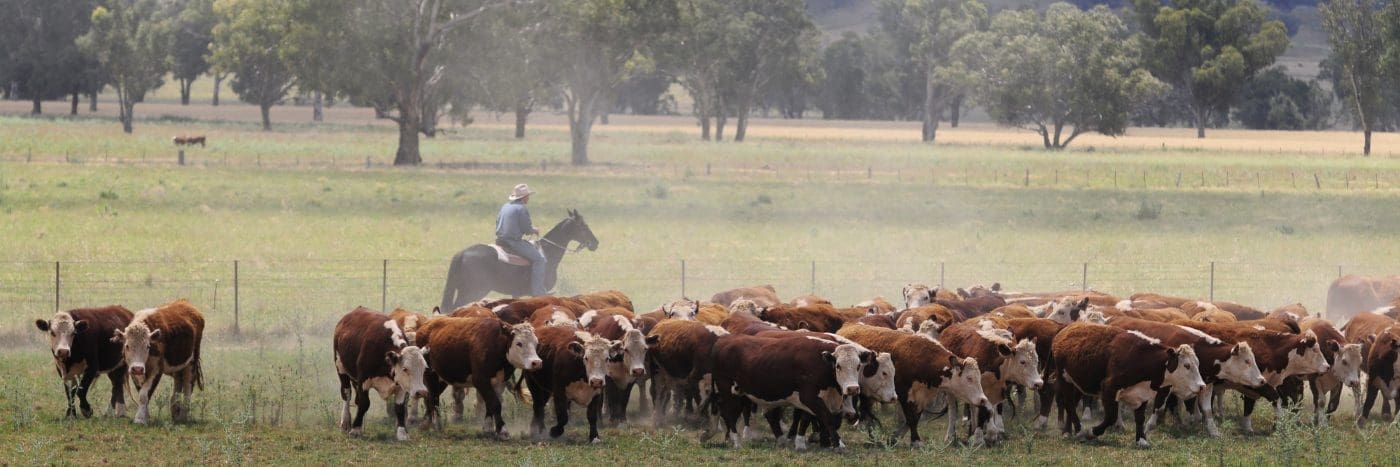Latest listings on our Jobs Central recruitment page:
- Stud Manager – Newcastle Waters (CPC)
- Station manager – Auvergne Station, NT (CPC)
- Assistant Manager – Newcastle Waters Station (CPC)
- Production Manager/Shipping Coordinator (Borthwicks)
- Operations Manager (Australian Campdraft Association)
- Cattle Manager (Agricultural Appointments client)
- Leading hand – livestock (Camm Agricultural Group)
Click here to access these and earlier Jobs Central recruitment listings
 WHEN a business takes on a new employee who turns out not to be a good fit for their job, it can be extremely expensive.
WHEN a business takes on a new employee who turns out not to be a good fit for their job, it can be extremely expensive.
Whatever the reason (lack of ability, lack of skills, not a ‘fit’ for the job or the environment), an ineffective or unhappy employee will not do as good a job, and the effects of that can ripple out through the business, and its clients or customers.
Loss of money, loss of business, loss of reputation and loss of morale can all result.
Regardless of whether your beef industry business employs one or a hundred, recruitment decisions that result in ‘bad’ employees sap your business’s time, training resources, and psychic energy.
Here are the top ten mistakes to avoid during the recruiting and hiring process. With some care and good systems in place, your recruiting, interviewing and hiring practices will result in better employees. Better employees will help you develop a strong, healthy, productive, and competitive agri-business.
Communication is vital
It sounds so obvious, but recruiters (external or internal) and managers must establish and maintain good communication. At the outset, all information about the job must be crystal clear; as the interview and selection process gets underway, regular feedback and dialogue is essential.
Getting the job description right
The importance of a quality job description is paramount. If the job listing is poorly written, vague, ambiguous, or boring, then top candidates won’t apply. If a successful candidate finds out their new job does not do what it said on the tin, then they’ll probably underperform – and then leave the company.
Not pre-screening candidates
A half-hour phone call before a face-to-face interview can save hours of your business’s time. Pre-screening applicants is a must for recruiting and hiring the best employees. You can discover whether the candidate has the knowledge and experience you need. You can screen for applicants who expect a salary that is out of your league. You can gain a sense about the person’s congruity with your culture.
Mistakes at interview
Using poor or even absent interview questions during the interview mean that candidates aren’t vetted for core competencies, the non-negotiable criteria for the position, or their perception of the company and the likelihood of there being a good cultural fit.
Over-valuing the candidate’s presentation
If the potential employee is not going to be client-facing, in a sales-based or liaison role, then how important is their appearance, their confidence, charming personality, or wit? Suitably chosen interview questions that require a candidate to demonstrate real depth of knowledge in their specialised field will help you separate those that dress to impress for an interview from those that will be truly effective.
Lack of respect for candidates
Always acknowledge applications, always give feedback, and always return calls. Never leave closed positions open on job boards. And, once you have your chosen candidate, do devote real resources to training them and helping them settle into their new job.
Due diligence
Always check references, and don’t put too much credibility into them; carry out your own background checks too.
False economy
Finally, when it comes to salary, don’t try to pay under the market rate; your employee will find out, and will feel undervalued. You are risking poor performance and eventual loss of that person. Putting off hiring is usually a false economy too; pressurised managers who have been under-resourced for too long are more likely to approve the first person that looks like even a partial match for the job.
Do nothing but talk during an interview
Every interview needs to have components other than questions, answers and discussion. Walk the candidate through the company. Ask about his or her past work experiences with situations that are relevant and/or similar to your company. Provide the candidate with a case study and get them to respond as they would act. By using tests and tasks that are directly related to the position for which the individual is interviewing, you will earn reams of relevant information to use in your selection process.
With all of this taken into consideration take the time to build a candidate pool with several candidates who meet the needs of your business. If you don’t have to make a choice among several qualified candidates, your pool is too small. Don’t ‘settle’ for someone if they don’t have the right skills and experience you need. It’s better to re-open and start your search again.
These mistakes can be fatal to a candidate’s ultimate success within your business and your whole organisation. If you do these activities correctly and successfully, you will increase the probability of a happy, successful employee contributing to your company’s success.
Source: AWX Agri – Partners in People.
